VPN Not Working in Iran? Fix it Quickly! [Step-by-Step]
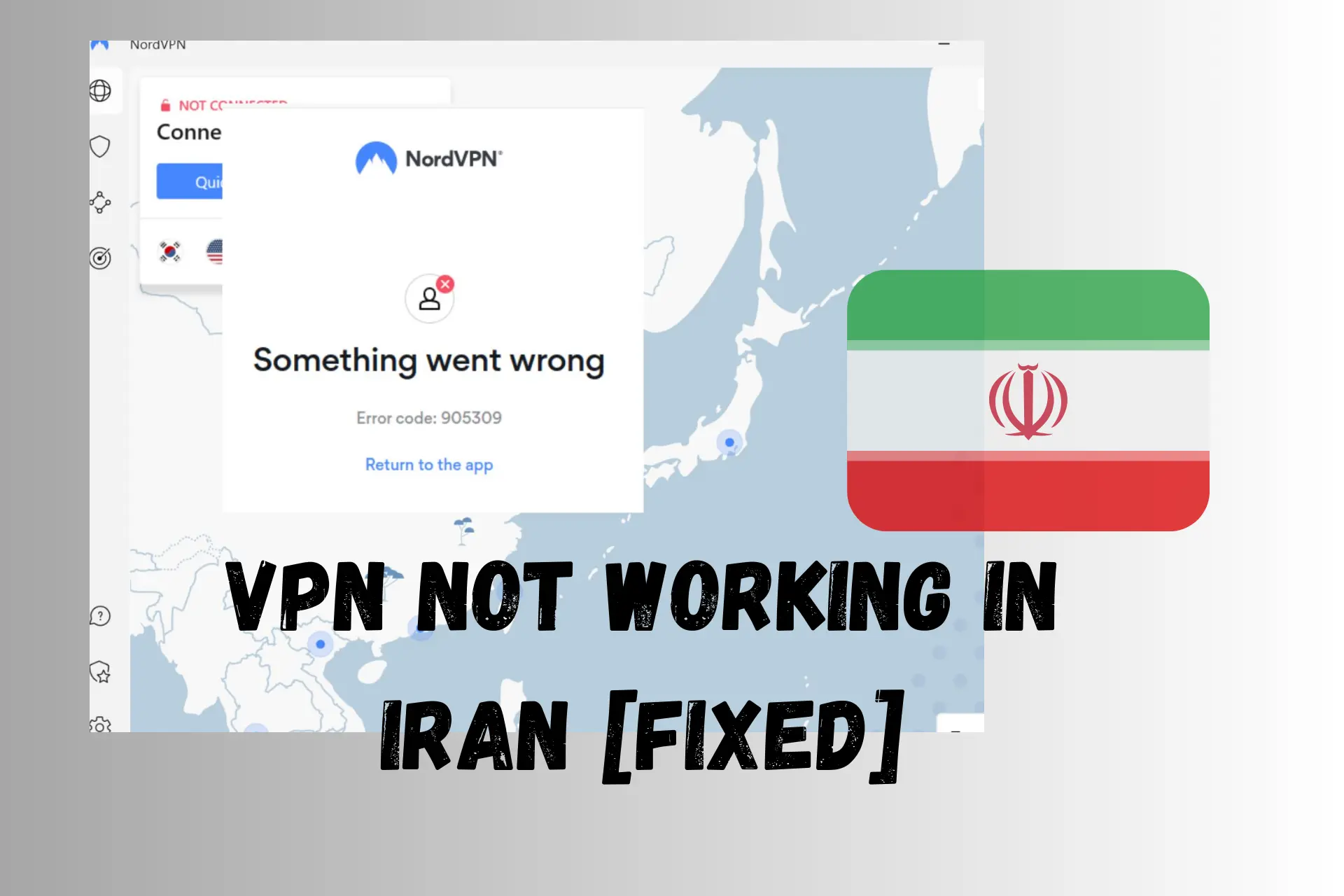
In Iran, the government implemented extensive internet censorship.
To mirror the Great Firewall of China, it introduced a protection bill aimed at restricting access to some websites and apps.

Access content across the globe at the highest speed rate.
70% of our readers choose Private Internet Access
70% of our readers choose ExpressVPN

Browse the web from multiple devices with industry-standard security protocols.

Faster dedicated servers for specific actions (currently at summer discounts)
As a result of this, apps like WhatsApp and Instagram are blocked.
Regrettably, even VPNs are not spared from this internet crackdown. Users have recently reported that NordVPN is not connecting in this country.
We understand the frustration many Iranians experience. That’s why we have discovered effective solutions to help you overcome VPN not working in Iran.
Does Iran block VPNs?
Yes. Iran blocks VPNs.
In Iran, only VPNs approved by the authorities are allowed, while using any other provider is illegal and can attract punishment.
Lately, there have been widespread complaints of nationwide VPN bans in this country, impacting even well-known providers like NordVPN which once worked perfectly in Iran.
Either the affected VPN apps would be unable to pass the connecting stage or they eventually display a can’t connect to VPN error message.
Consequently, users have expressed frustration, particularly with their inability to access the OpenVPN protocol.
As the Iranian government tightens its grip on cybersecurity, the battle for online freedom continues to escalate.
Now let’s go ahead and explore the possible fixes to apply to regain control over your digital experience in Iran.
How to fix your VPN when it’s not working in Iran?
Firstly, ensure that your internet connection is strong and not in any way interrupting your VPN.
Gotten that off the way? Let’s dive in already!
- Change to another server
Once you notice that your VPN is not working in Iran, switch servers. This is because your current server may be overcrowded, farther away, or in a region not supported by the app or website.
Moreover, immediately after you connect to a new location, your VPN provider will assign a new IP address to you which will, in turn, grant you a new identity.
To get this done:
1. Launch and log in to your VPN app.
2. Expand the ellipsis or arrow beside the existing location to see the server list.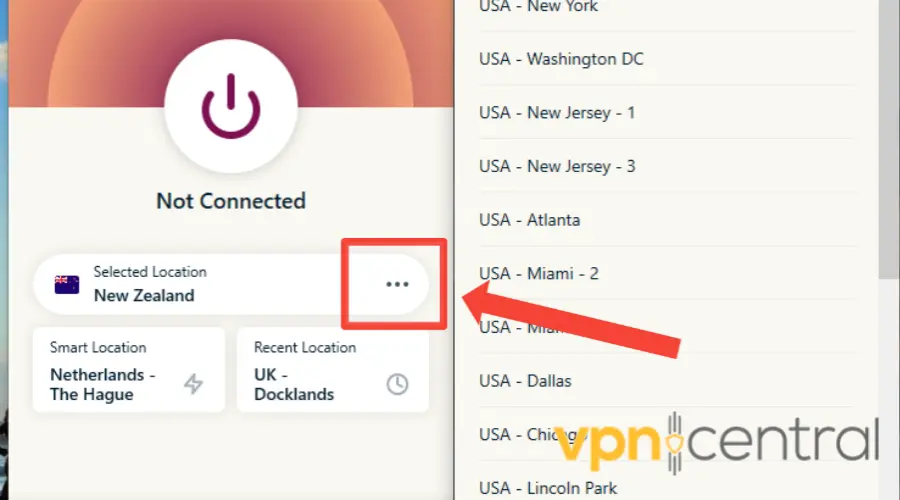
3. Click on the server of your choice.
4. Go back to the app or website you wish to unblock. Here, we made it pass the restriction on Whatsapp.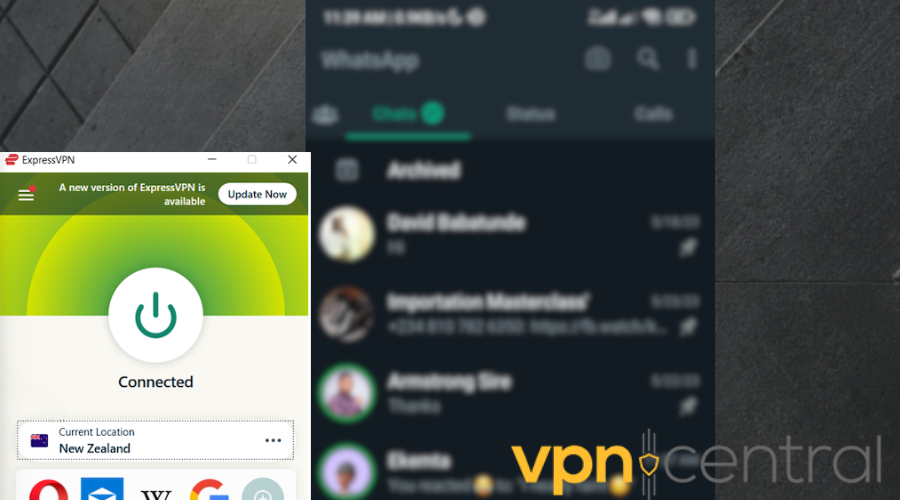
Feel free to try out a few servers and if none still works, you can try out the next fix. - Try a different protocol
Iran has reportedly blocked the OpenVPN UDP protocol which uses the port 1194. So if your VPN uses this setting, changing it may help you bypass geo-block with ease.
Follow the steps below to transit from one protocol to another.
1. Open and log in to your VPN app.
2. Navigate to Options or Settings.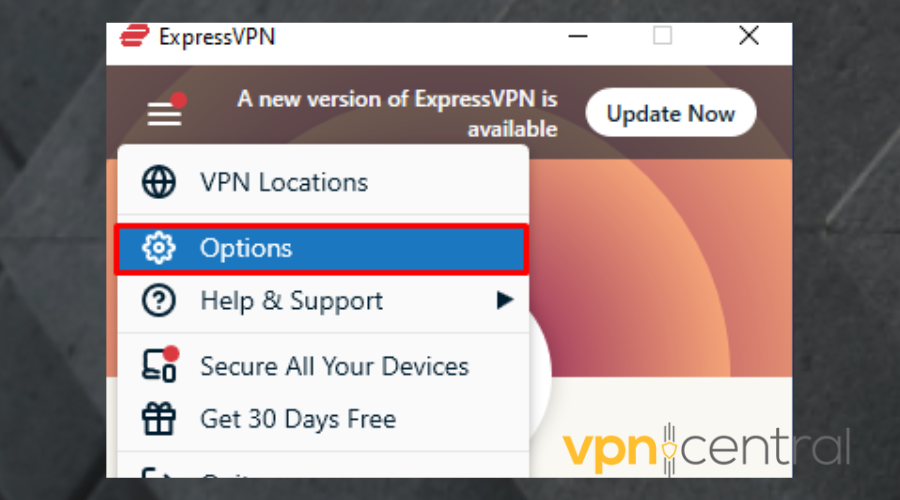
3. Go to Connection and click on VPN protocols or VPN preferences.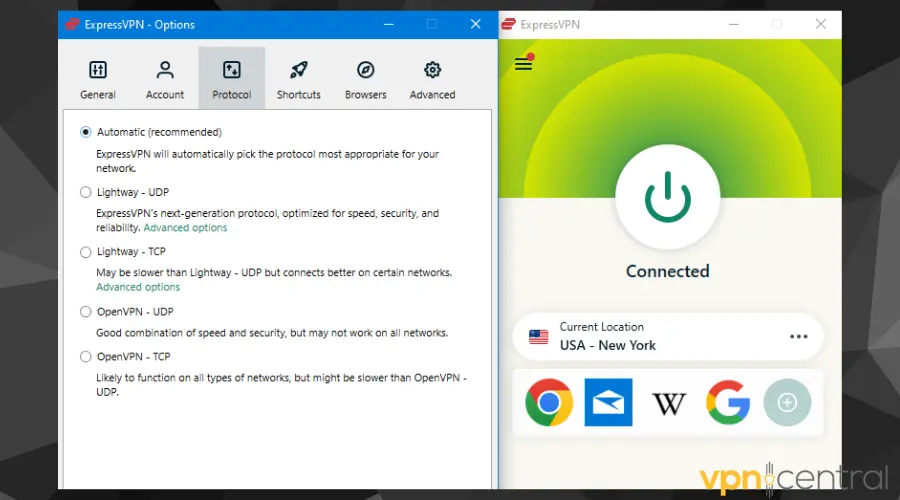
4. Choose an OpenVPN TCP or another protocol entirely.
5. You should be able to unblock the website or app by now. We got access to Snapchat.
- Use an obfuscated server
An obfuscated server conceals your VPN connection and makes it seem as though you are on a normal internet network.
It may be your best shot at making fix any VPN that is not working in Iran.
In this guide, we will use NordVPN as an example but these steps should be similar no matter the VPN you use.
To do this:
1. Launch your VPN app.
2. Log in with your details.
3. At the bottom-left of the window, click on Settings. Then select Connection.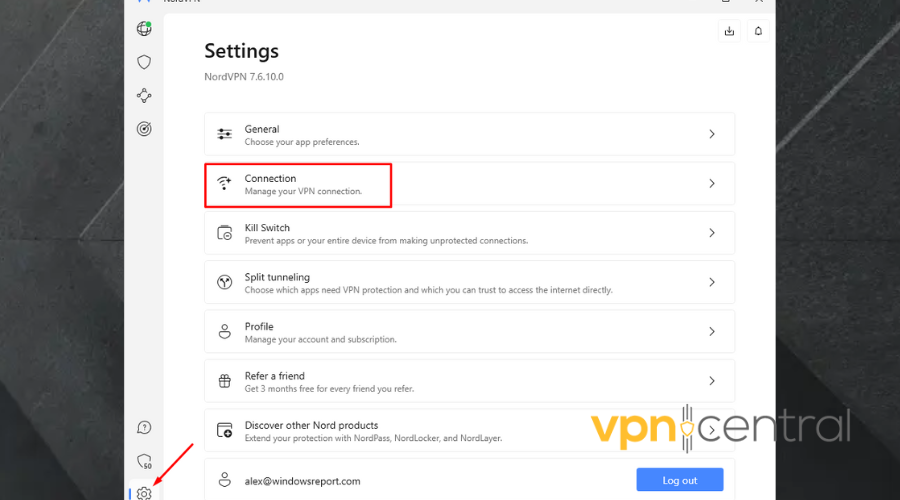
4. Go to VPN protocols. Change it to OpenVPN TCP.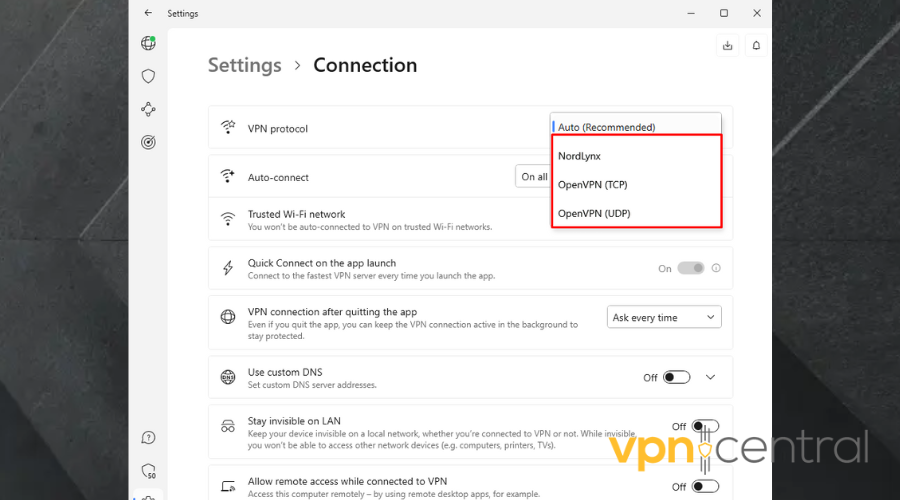
5. Return to the home window.
6. In the line of displayed countries, expand the arrow.
7. Click on the arrow beside Specialty to expand it. Select Obfuscated servers.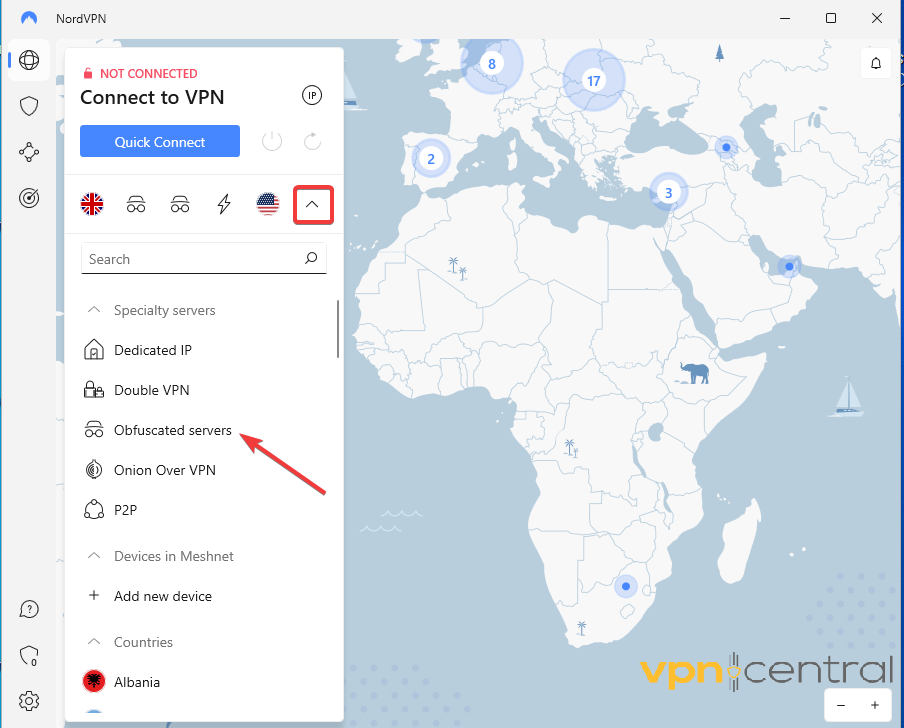
8. Click on the arrow in the dialog box that appears to choose a server.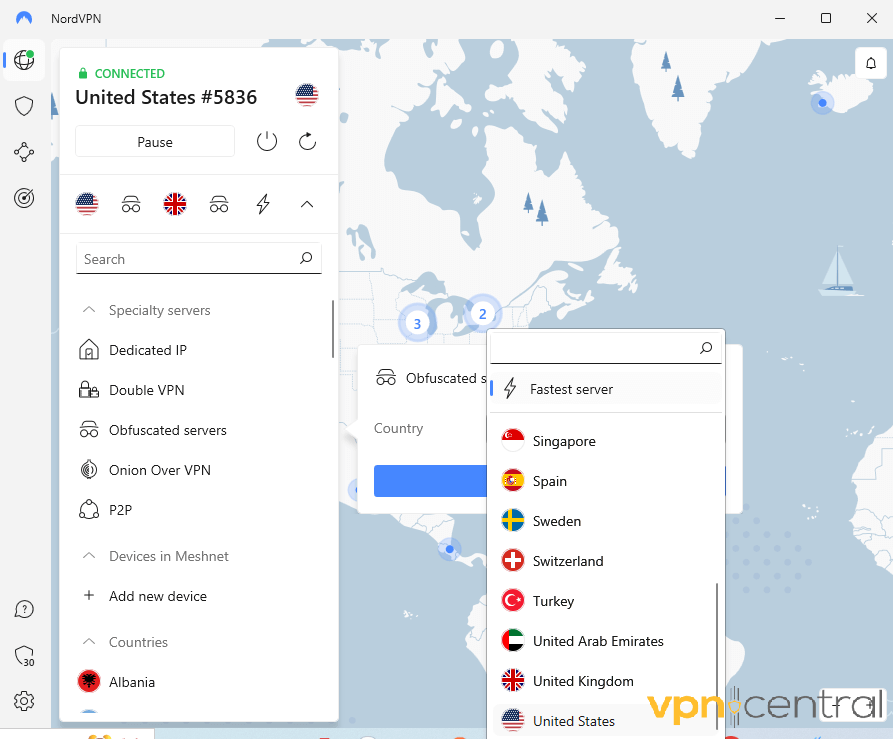
9. Click to connect.
10. Try using the app or website again. It should work now. We successfully gained access to Twitter.
- Clear cache and cookies
When you use a website, your browser saves your location, preferences, history and so on in little files called cookies.
Websites can then use these cookies to tell your actual location, doing away with them can make your VPN function again.
1. Open your browser.
2. Click on the three-dot in the upper-right corner of your browser to access the menu.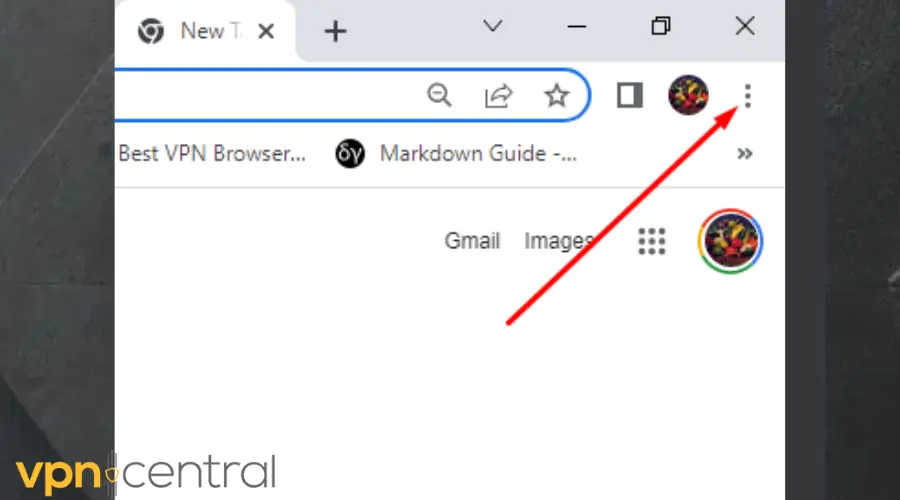
3. Scroll down to More tools. Click on it.
4. Select Clear browsing data.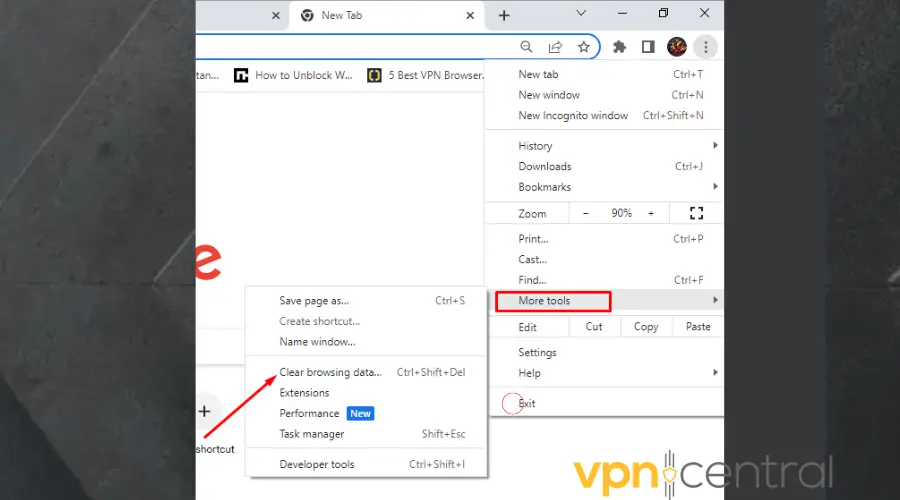
5. On the Basic tab, click the drop-down and select All Time.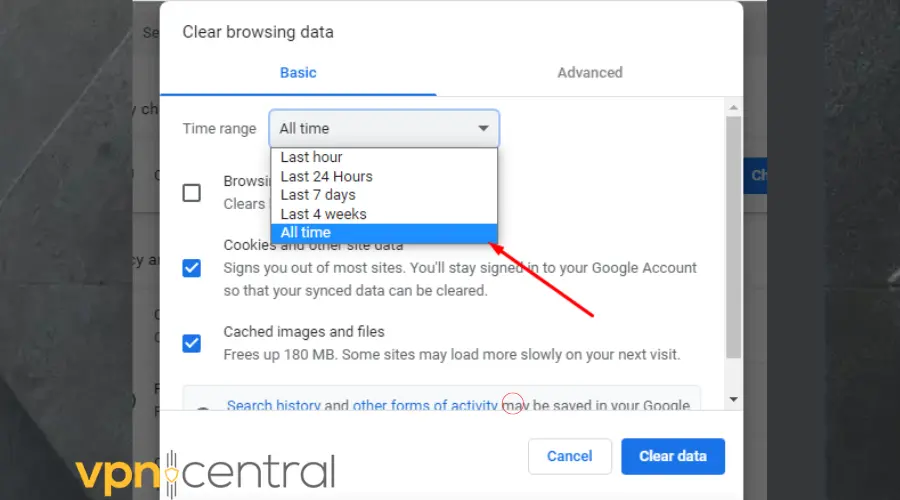
6. Check all the boxes besides Browsing history, cookies and other sites etc.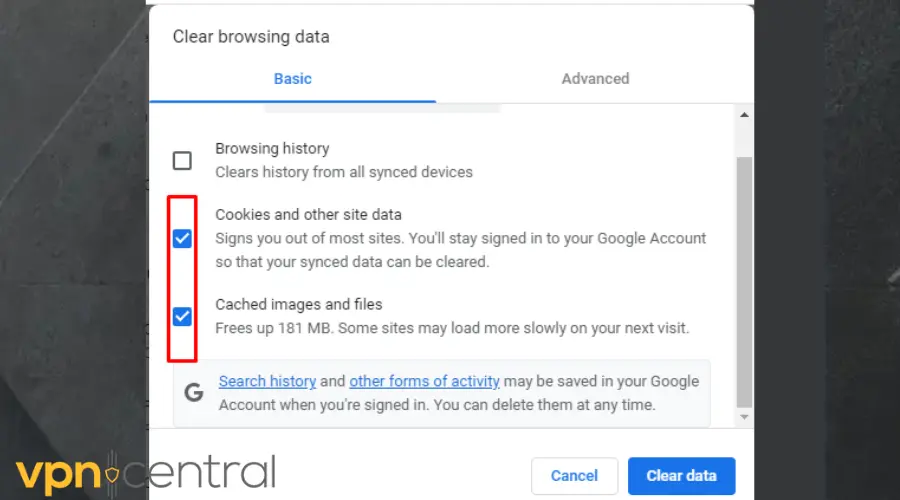
7. Click the Advanced tab.
8. Repeat the same process.
9. Now click on Clear data.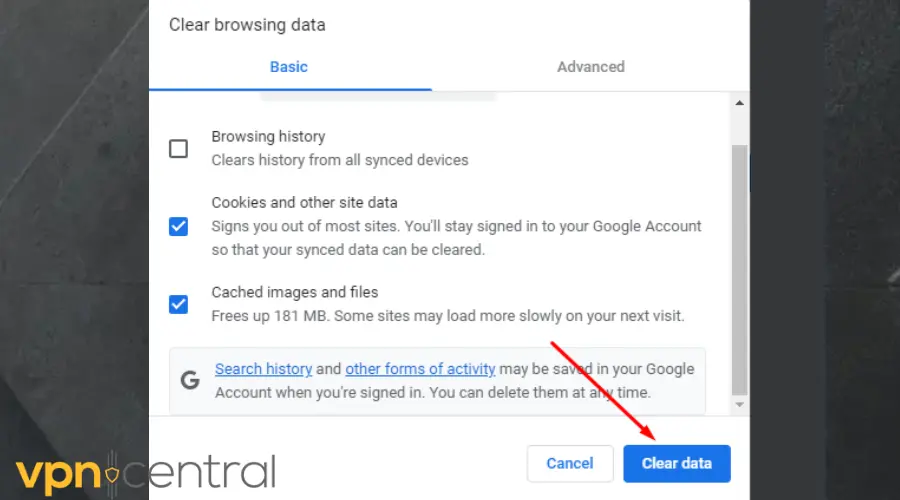
10. Try using the website or app again.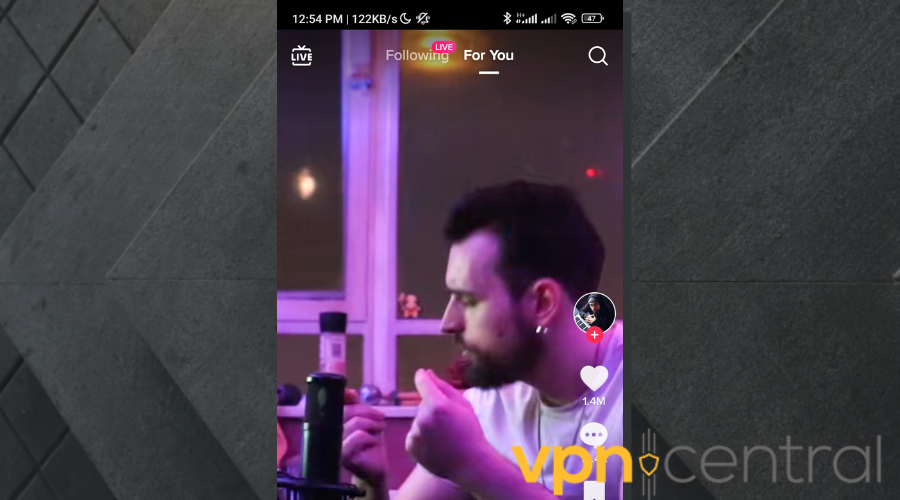
If all these solutions have still not granted you access to the blocked websites, go ahead and try the next fix. - Change your VPN provider
As previously stated, certain VPNs, such as VistaVPN, encounter difficulties when operating in Iran.
This is particularly true for those that rely on specific ports, such as OpenVPN UDP, which are restricted in this area.
To solve this nagging censorship issue, you would have to use another VPN provider.
To achieve this:
1. Subscribe to a stealth VPN provider like ExpressVPN.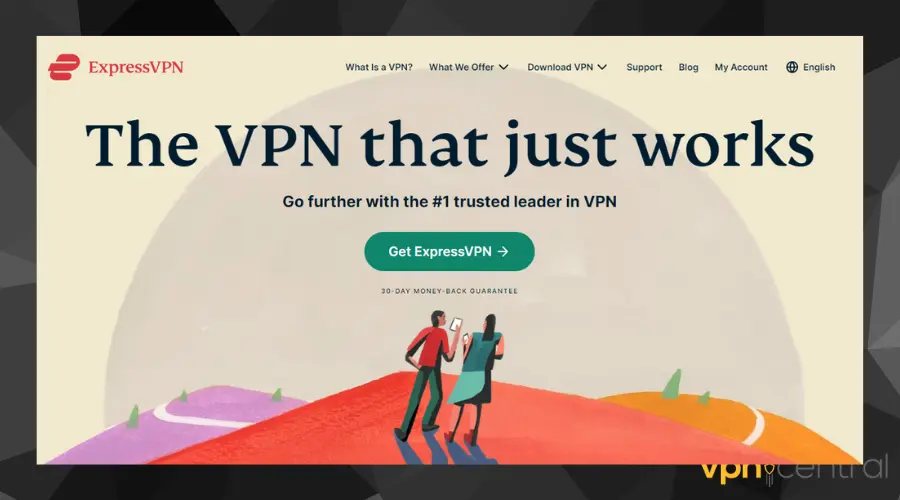
2. Download and install the app on your device.
3. Click on the ellipsis to display the server list.
4. Choose any location of your choice.
5. Attempt to access the website or app again. In this example, we unblocked Facebook.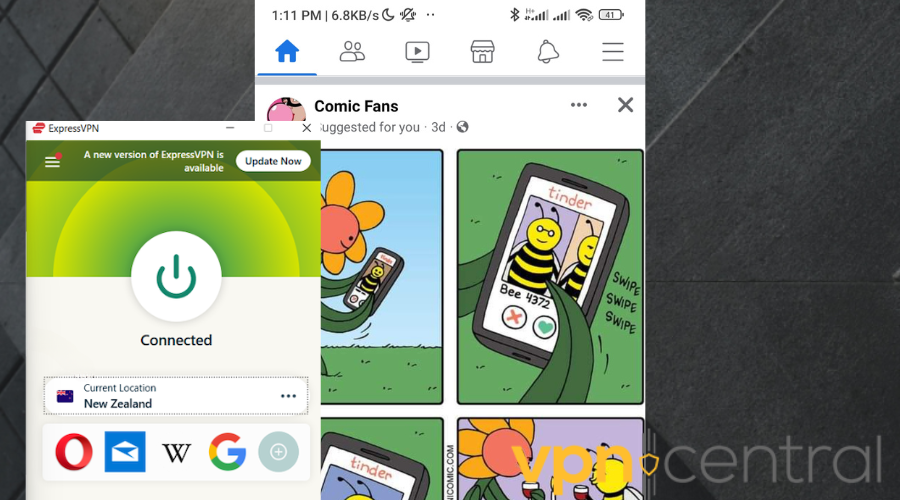

ExpressVPN
Upgrade to a better VPN that won’t let you down, even in restrictive countries like Iran!Best VPNs to use in Iran
Given the watchful gaze of the Iranian government, it comes as no surprise that acquiring the most effective and covert VPN is essential.
Therefore, we have curated a concise selection of leading VPNs capable of successfully evading their scrutiny. In this list is also a few free VPNs that work in Iran.
- ExpressVPN: a popular choice for users in Iran, offers military-grade encryption that automatically scrambles your traffic and hides you from the government and ISPs of Iran.
- Surfshark: with its NoBorders mode specifically designed to overcome censorship, it is a reliable VPN for accessing blocked content in Iran. It also provides unlimited simultaneous connections, strong encryption, and a wide range of servers worldwide.
- ProtonVPN: This is a privacy-focused VPN that can help you defeat blocks in Iran using stealth VPN encryption. Additionally, it does not log your activities or websites you visit which further helps keep you under the radar.
- Windscribe: Windscribe is known for its generous free plan, making it an attractive choice for users in Iran. With its split routing feature, you can decide to exclude some apps that from connecting to the VPN.
- HotspotShield: This utilizes its proprietary Catapult Hydra protocol, which enhances connection speeds and makes an effective tool for circumventing blocks in Iran. In addition, it has 1800+ servers in over 80 countries worldwide.
Wrap up
In Iran, individuals face challenges in accessing websites and services. While the government attempts to restrict VPN use, there are solutions to overcome these obstacles.
Finally, by following troubleshooting steps, such as checking internet connections, switching servers, or changing protocols, users can try to fix VPN connectivity issues.
Read our disclosure page to find out how can you help VPNCentral sustain the editorial team Read more


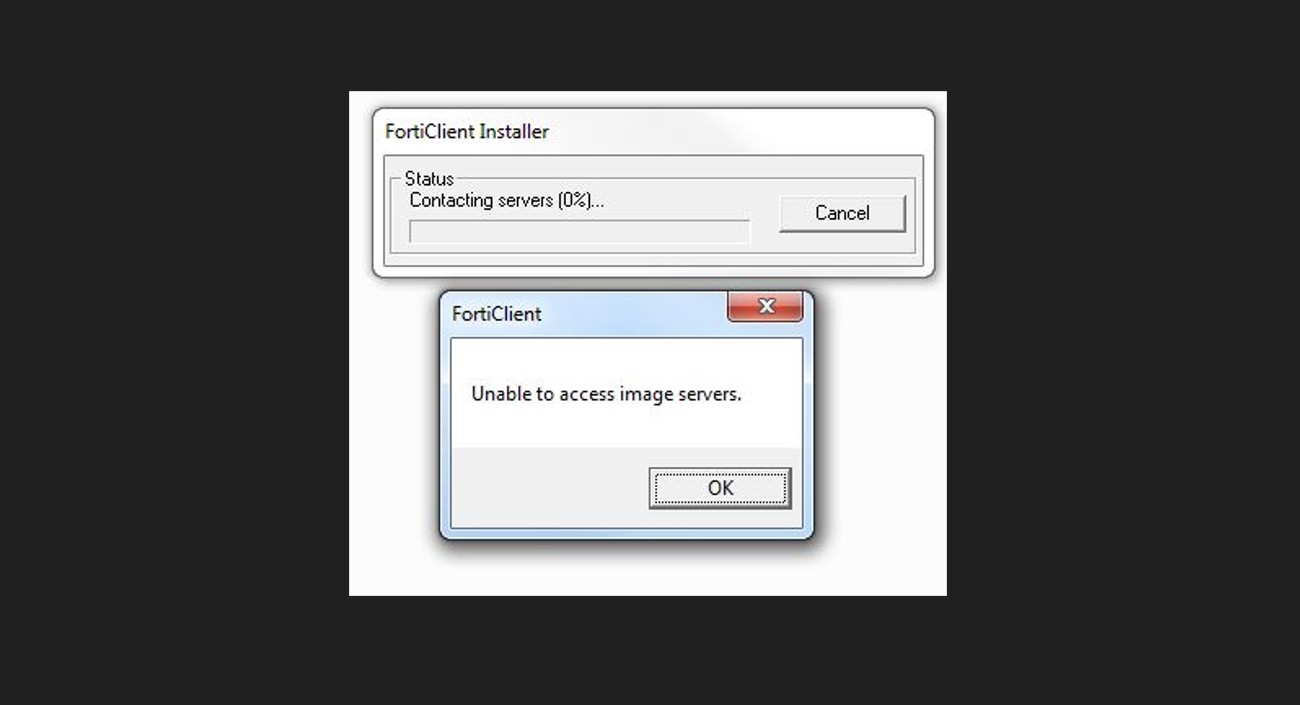

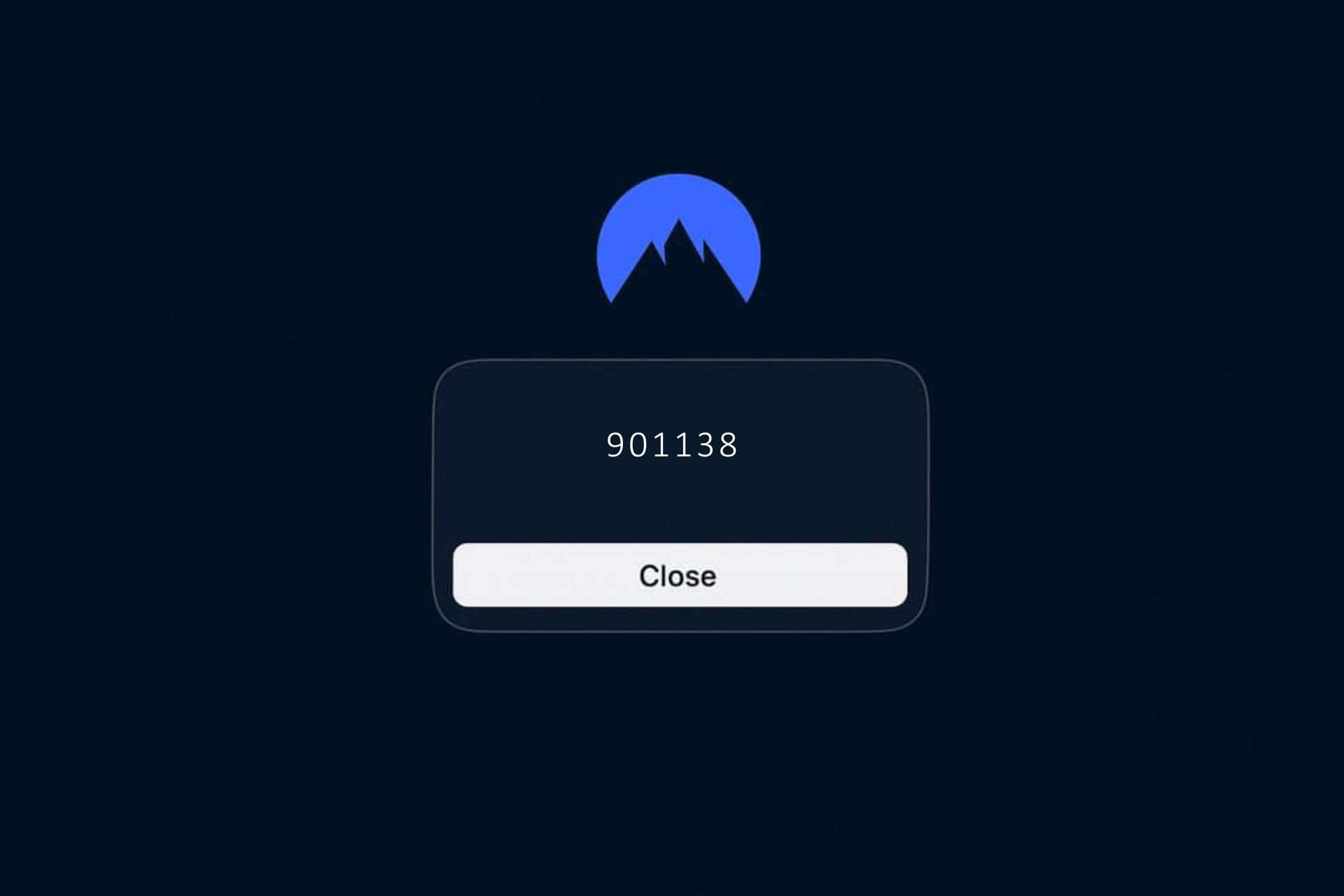
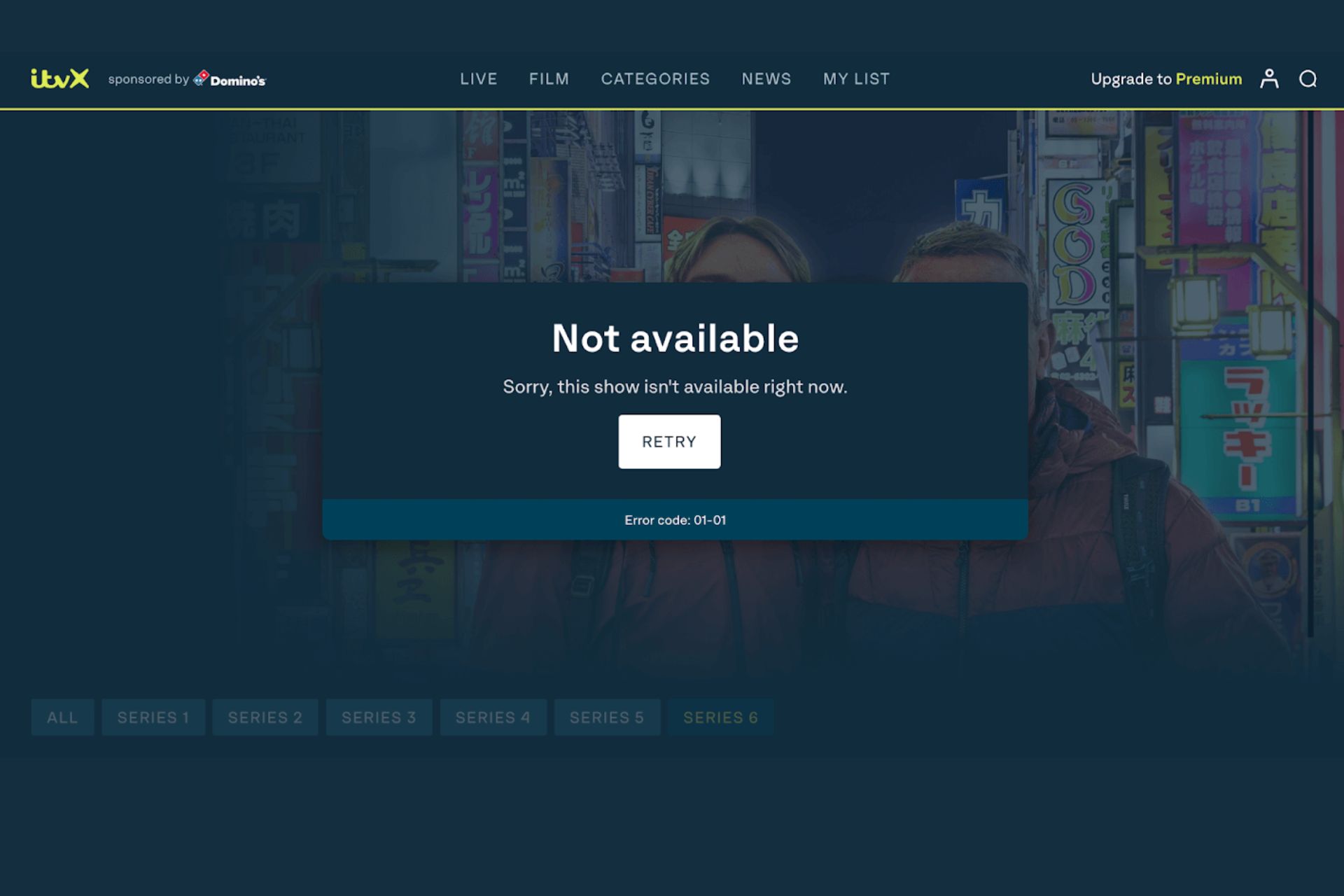
User forum
0 messages